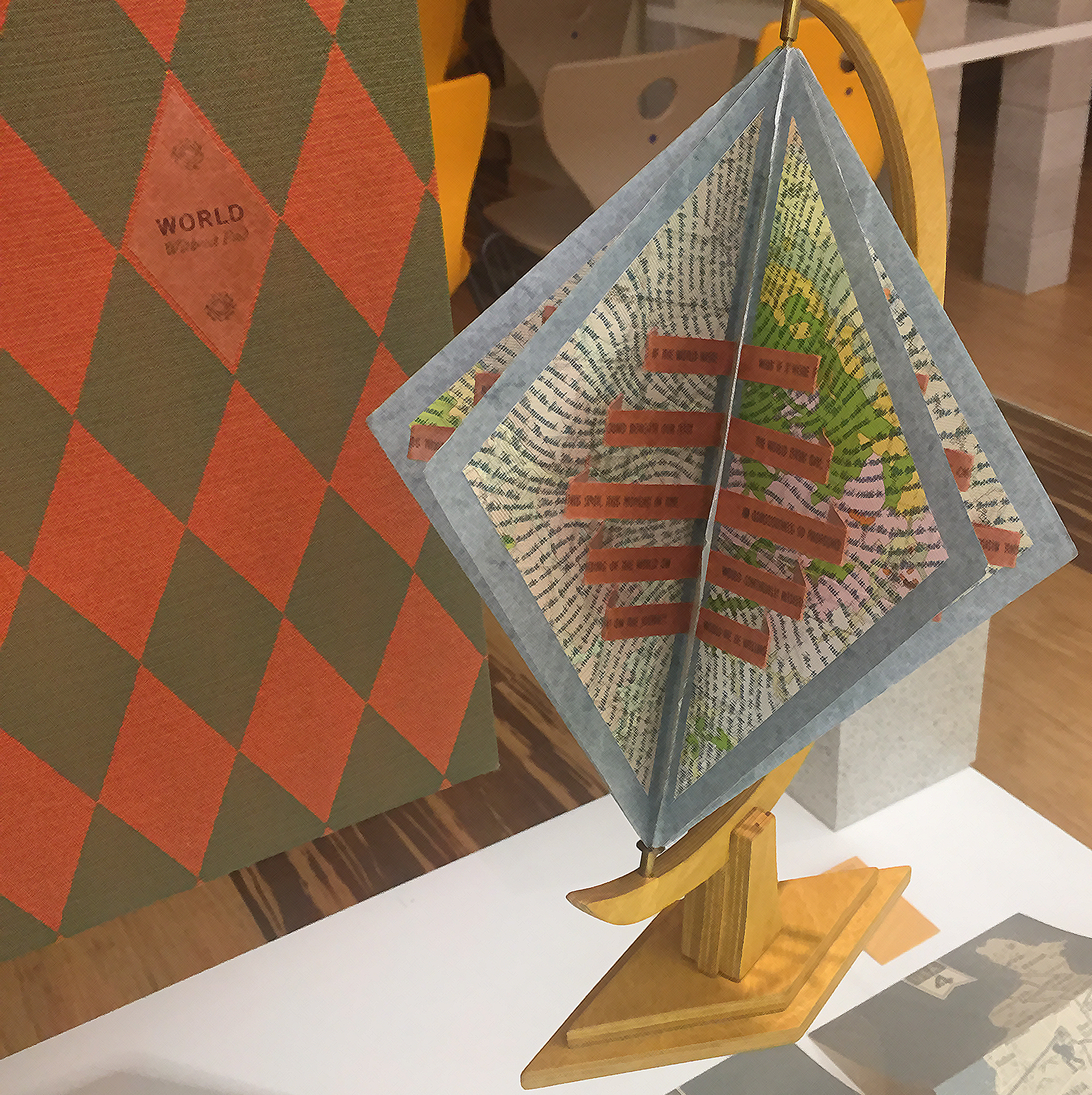Books as Aesthetic Objects


By Wendy Fernstrum
2005
All the definitions of irony are at work in Promises Kept, the verbal, the visual, the dramatic and even the physical. Open the small black box covered with Japanese book cloth and find a rich collection of statements, each one a promise kept only in this box. The reader can tell that these promises have been broken because on every page, they are obscured by a random pattern of holes punched with a Japanese screw punch: these Oriental details are the only geographic notes of the work: the messages are universal, made universally funny by Fernstrum’s artistry.
By using various papers (the list is long) in diverse sizes, Fernstrum creates different voices speaking, as it were. The messages range from the apologetic “I’ll never let you down again,” to the more mundane “If you do the dishes tonight, I’ll do them tomorrow and the next day.” Sure!
Who can these speakers be? Lovers (“Let me touch you there and I promise you won’t regret it”) and spouses, certainly, but also interior monologists (“I won’t drink and smoke so much when we move to California”), political figures (I can promise you this; if I am elected,…), friends, children, parents, employees and employers, your cousin Al, the Fedex guy – we are all in the box with these vows.
But a big surprise lies in the last promise because it has no holes, “I’ll make it up to you, I swear to God.” The wonderfully clear Goudy Oldstyle lettering is more decisive without the holes of course, but perhaps it’s the huge, scary invocation of God that gives this one promise its power. It seems as though the artist is confessing for us; we’ve all broken many promises but we are all capable of redemption. It’s the Yom Kippur, the Advent calendar of promises: it’s the future we promise to someone else, but really promise ourselves.
So that last promise made me stop laughing, but when I turned it over, I started again: there in a square niche shaped exactly to fit is a tiny tissue envelope: in it are all the punched-out holes. I guess we can make these promises a few more times; we just have to see if we can put our lives and our lies back together.
The proliferation of books about Pinocchio is a testament, of course, to the enormous attractiveness of this redemptive tale; the addition of this American interpretation of the Italian tale to the Jaffe Collection is a testament to the magic of pop-up. Its dimensionality literally raises the story off the page and brings the book (like the puppet) to life.
- Judith Klau